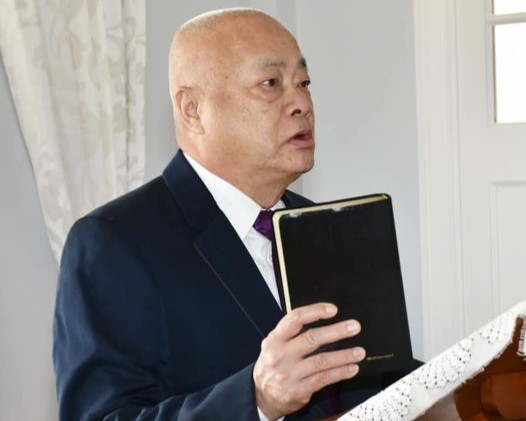Fiji’s Attorney General Graham Leung delivered his maiden speech in Parliament Monday saying that he saw it as his duty to promote respect for the law in all government affairs.
The Attorney General said that the rule of law was central to our democracy.
“The rule of law means that no one, including the elected Government of the day, is above the law”.
He said that not being a member of any political party allowed him a degree of independence, unavailable to an Attorney General who is an elected “Member of Parliament.”
Leung said, “I am not a politician. First and foremost, I am a “lawyer.”
“Public access to government held information is important.
“It allows individuals to better understand the role of government and the decisions being made on their behalf.
“When the people are informed government can be held accountable for its actions and policies.
“The right to know is central for upholding other basic human rights, for promoting transparency, justice and development. It underpins and strengthens democracy,” he said.
The Attorney General said he intend to seek the endorsement of Cabinet to proceed with implementation of the Information Act as soon as possible.
“Once the Act is in force, it will allow access to information to improve the lives of people, making available to them information relating to education, health care, and other public services,” he said.
The Attorney General said he would work with the Cabinet to introduce a Code of Conduct to cover Ministers and senior government officials.
He said that it would play an important role in strengthening integrity in government.
The Code of Conduct would bring about greater and transparency, contributing to public trust in government.
While commending the work of the Legal Aid Commission, the Attorney General noted that the growing demand for its services might require some tightening of the eligibility rules for accessing legal aid.
Leung said that “A society that values liberty and justice for all must ensure that our citizens, especially the poorest, can have access to legal aid,” he said.
The Attorney General recognised the challenges to make the HRADC an effective and credible national human rights body.
He emphasised the need for the Fiji Human Rights and Anti-Discrimination Commission
(FHRADC) to meet minimum international standards, founded on pluralism, independence, and effectiveness.
Highlighting the unfinished business before Fiji Independent Commission Against Corruption(FICAC), the Attorney General stressed the importance and urgency of holding individuals accountable for corruption.
He warned of the destabilising potential of corruption, and its threat to the rule of law and the country’s economic development.
Leung urged FICAC staff to perform their duties fearlessly according to law.
He said and to follow the evidence, reaffirming the constitutional mandate to prosecute those who have stolen from the public purse or had abused their office for personal gain.
The Attorney General said that FICAC must never again be used as a weapon to remove or punish the government’s political opponents.
“That would be an abuse of power, and unacceptable. Fiji is not a police or totalitarian state.
“Our long nightmare is over – there can be no returning to the dark days of tyranny where agents of the state were arbitrarily sent to the homes of people who were considered to stand in the way of the government.”
Leung also said that law reform is vital to the legal system and the country.
“Fiji’s laws cannot remain static. They must keep abreast of changing social, economic and other developments in our country and outside it.
Globalisation and the rapid pace of technological innovation will require a change of mindset and new possibly laws. Artificial Intelligence, cybercrime, money laundering, new trading agreements and climate change means that Fiji must be ready to deal with new and emerging problems.
The Attorney-General said that an independent, impartial, honest, and competent judiciary was essential to uphold the rule of law and public confidence.
Recognising complaints from the public about delays in the courts, Leung commended the work undertaken by a Committee chaired by the Acting Chief Justice.
This Committee had reviewed the rules of civil procedure. The Attorney General said this was a good start, a comprehensive overhaul might be needed.
With reference to the recent judicial appointments, the Attorney General said that while he was a strong supporter of localisation, it should not come at the expense of competence and integrity.
The Attorney General said “there should be a good mix of locals and expatriate judges who could mentor young judicial officers.
Reflecting on Fiji’s fifty years of independence, the Attorney General lamented the country’s underdeveloped sense of nationhood.
Leung called for a renewed understanding and commitment to nationhood, emphasizing shared values and the importance of goodwill, tolerance, and understanding.
He warned against insular politicians sowing the seeds of division and distrust, which had come at great human and financial cost.
Despite the challenges, the Attorney General expressed optimism about Fiji’s future, noting the country’s promise and hope was supported by the goodwill of its people.
“For all its faults and frailties, Fiji remains a country full of promise and hope. “I believe as a country, our best days are ahead of us,” Leung said.
Acknowledging the big responsibilities ahead, the Attorney-General pledged to discharge his duties without fear or favor, malice or ill will.
“I begin this journey with a deep sense of gratitude and a profound understanding of the responsibilities ahead,” he said.














